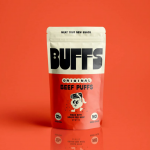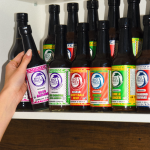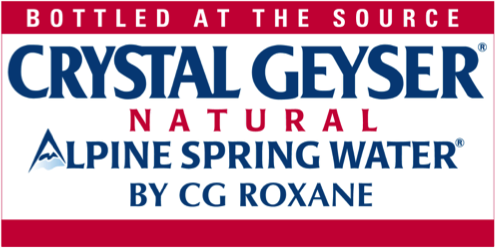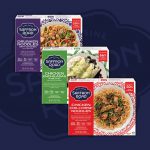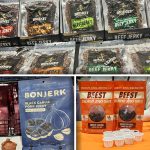Aspartame Anxiety: WHO Set to Label Sweetener as ‘Possible Carcinogen’
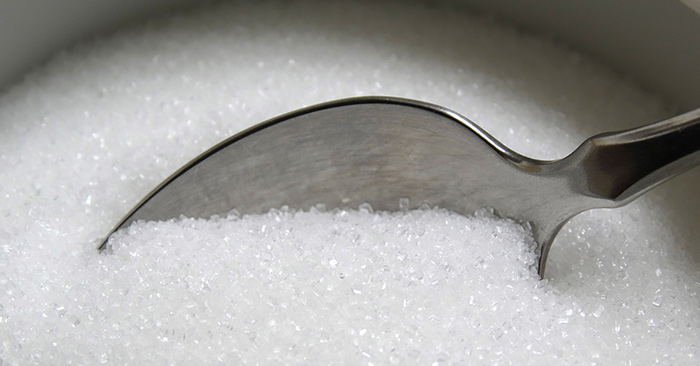
Is aspartame a carcinogen?
That’s the concerning question the International Agency for Research on Cancer (IARC), the cancer research arm of the World Health Organization’s (WHO), has been asking itself lately.
According to an exclusive Reuters report, two unnamed sources claim (IARC) will officially designate aspartame – one of the most common artificial sweeteners – as a “possible carcinogen” next month. That decision holds potentially significant impacts on nearly the 6,000 products made with the amino acid-derived substance – including most diet sodas, sugar-free gum and even some Snapple Drinks.
IARC finalized the ruling earlier this month after meeting with “external experts” and reviewing published scientific evidence and plans to release its opinion on July 14. While the research agency does not hold the authority to weigh in on how much aspartame is hazardous to consume, the Joint WHO and Food and Agriculture Organization’s Expert Committee on Food Additives (JECFA) does, and it plans to simultaneously release a report on the alt-sweetener the same day as IARC.
Aspartame’s health impact has been a subject of debate for decades. Since the 1980’s, JECFA has claimed a person would need to drink between 12 and 36 cans of diet soda per day, depending on the amount of aspartame used in the product, to experience hazardous effects.
As expected, many major food corporations and U.S. regulators are lining up to oppose the decision, asserting that existing evidence is insufficient. Industry groups including the International Sweeteners Association (ISA) directly opposed the ruling, highlighting that IARC is not “a food safety body” and is basing its decision off of “widely discredited research,” in a statement published yesterday.
“No conclusions can be drawn until both [IARC and JECFA’s] reports are published,” said Frances Hunt-Wood, secretary general of ISA. “Aspartame is one of the most thoroughly researched ingredients in history, with over 90 food safety agencies across the globe declaring it is safe, including the European Food Safety Authority, which conducted the most comprehensive safety evaluation of aspartame to date.”
But, just the suggestion of being labeled a carcinogen could be enough to damage the ingredients’ standing in the minds of consumers. Kate Loatman, executive director of the International Council of Beverages Associations (ICBA), highlighted that IARC’s ruling, in essence, means that aspartame is “no more of a hazard to consumers than using aloe vera.”
“Public health authorities should be deeply concerned that this leaked opinion contradicts decades of high-quality scientific evidence and could needlessly mislead consumers into consuming more sugar rather than choosing safe no- and low-sugar options – all on the basis of low-quality studies,” Loatman said in a statement.
One of the ruling’s main points of contention stems from IARC’s generalized method for assessing ingredients, which is based on the strength of evidence rather than the actual substance’s hazard level. The agency uses four classifications to assess a substance: carcinogenic, probably carcinogenic, possibly carcinogenic and not classifiable. Asbestos, for example, has been squarely deemed carcinogenic while “working overnight” and eating red meat are “probable” carcinogens – the second highest level by IARC metrics. Aspartame will be placed in the “possibly carcinogenic” camp, only one step above “not classifiable.”
Though the ruling does not have any immediate impact on food regulations, past IARC rulings for substances like glyphosate have had a significant impact on consumer perception. The commonly used weed killer ingredient was labeled as “possibly carcinogenic” by IARC in 2015, spurring a wave of class action litigation and public mistrust, eventually leading many manufacturers to reformulate recipes while forgoing the ingredient in question.
This leaked opinion from IARC also runs counter to a systematic review published by the WHO in April 2022, in which the agency concluded there was “no significant association” between consumption of low- to no-calorie sweeteners and any type of cancer. Last month WHO published guidance advising consumers against using non-nutritive sweeteners (NNS), including aspartame, for weight control. The rationale cited that there were no long term weight loss benefits to consuming NNSs and that regular use could lead to increased risk of type 2 diabetes, cardiovascular diseases and mortality, but cancer was not named.
As consumer demand for low sugar products continues to rise, alternative sweeteners have come under heightened scrutiny. Sugar alcohol erythritol took a reputational hit late last year as well when a new report cited a possible link between the sweetener and an increased risk of cardiovascular disease. Though the merits of that study have also been called into question, the impact on consumer’s opinion continues to reverberate through the industry.


